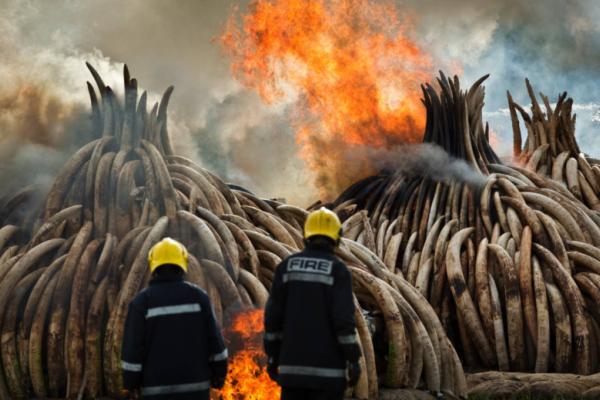Kenya on Saturday set fire to 105 tonnes of ivory and 1.35 tonnes of rhino horn, a stockpile 10 times larger than the previous biggest such burn, as part of its campaign to ban all trade in the highly prized animal parts.
The stockpile of elephant tusks and rhino horns in a game reserve near Kenya’s capital would have been worth an estimated 130 million euros to smugglers.
But the country’s president, who lit the fire, wanted to send a message that trade in ivory – which poses an increasing risk to the species – must be stopped.
“Poaching and trafficking wildlife is now a branch of international crime. The fight against it will be won by alliances across nations and continents. The first step must be closer cooperation, especially among the states that hold Africa’s remaining elephant herds,” Uhuru Kenyatta said.
Commercial trade in African elephant ivory was banned in 1989, but conservationists say one-off sales that have since been permitted have revived demand.
Kenya is seeking a total world ban on ivory sales when the Convention on International Trade in Endangered Species of Wild Fauna and Flora (CITES) meets in South Africa later this year.
The country staged its first such burning ceremony in 1989 but the latest incineration is thought to be the biggest ever of its kind.













